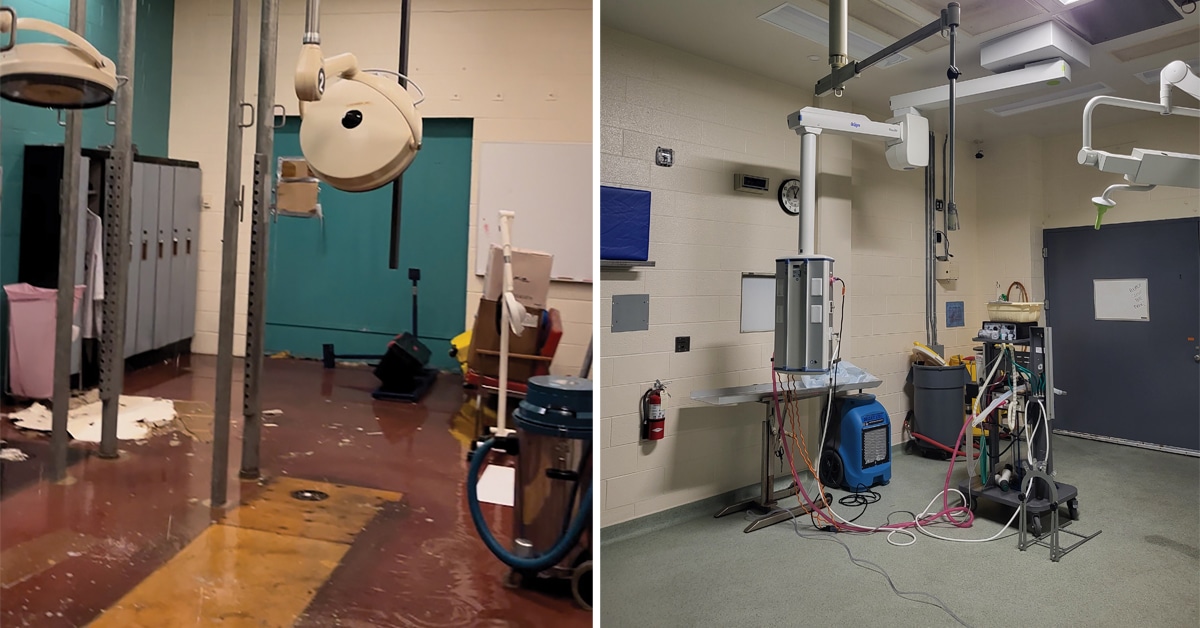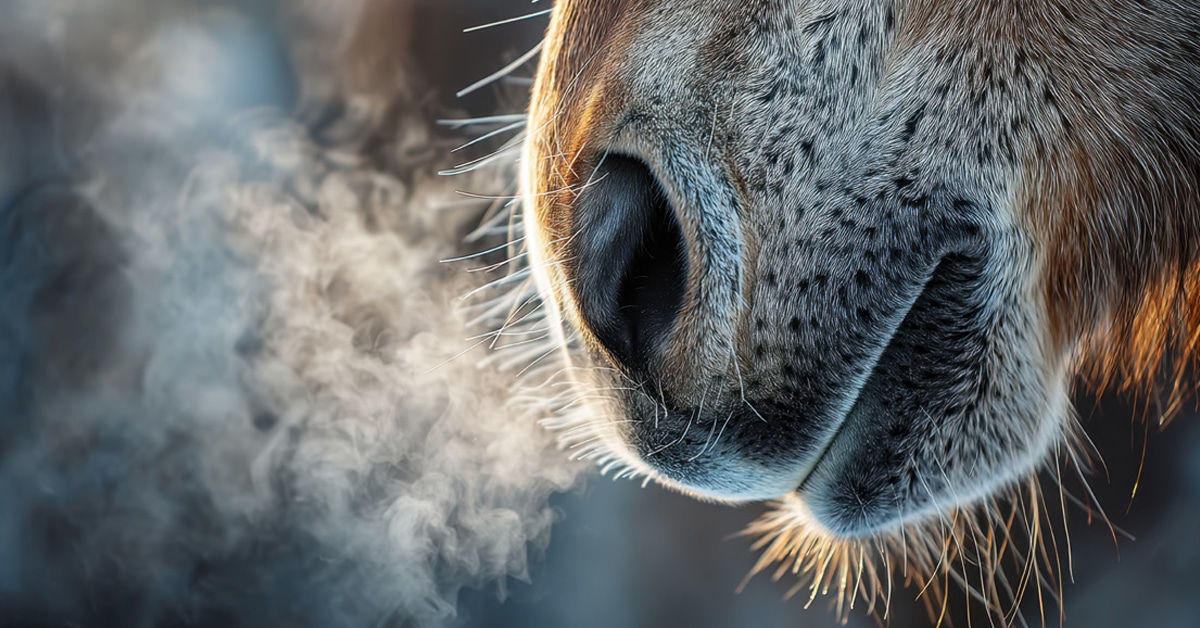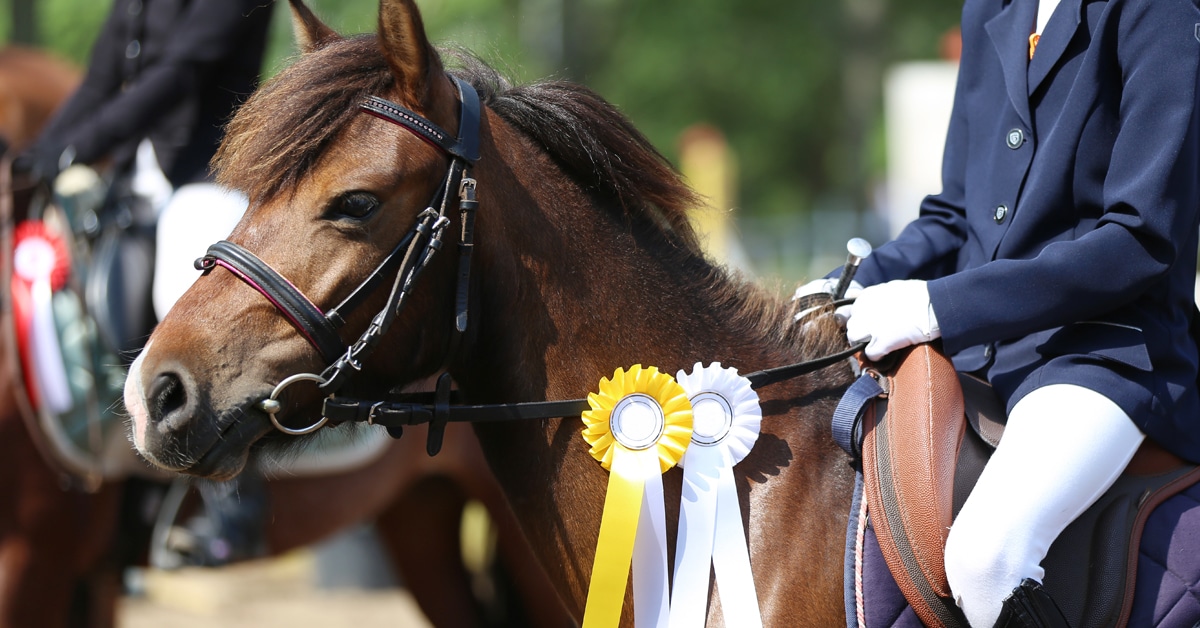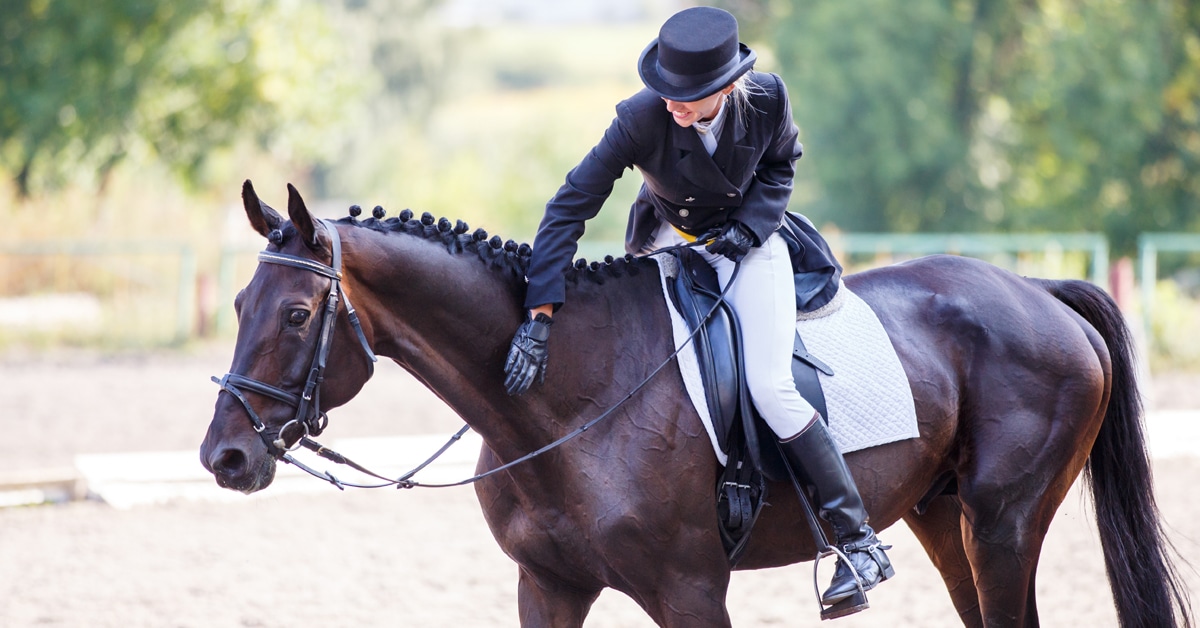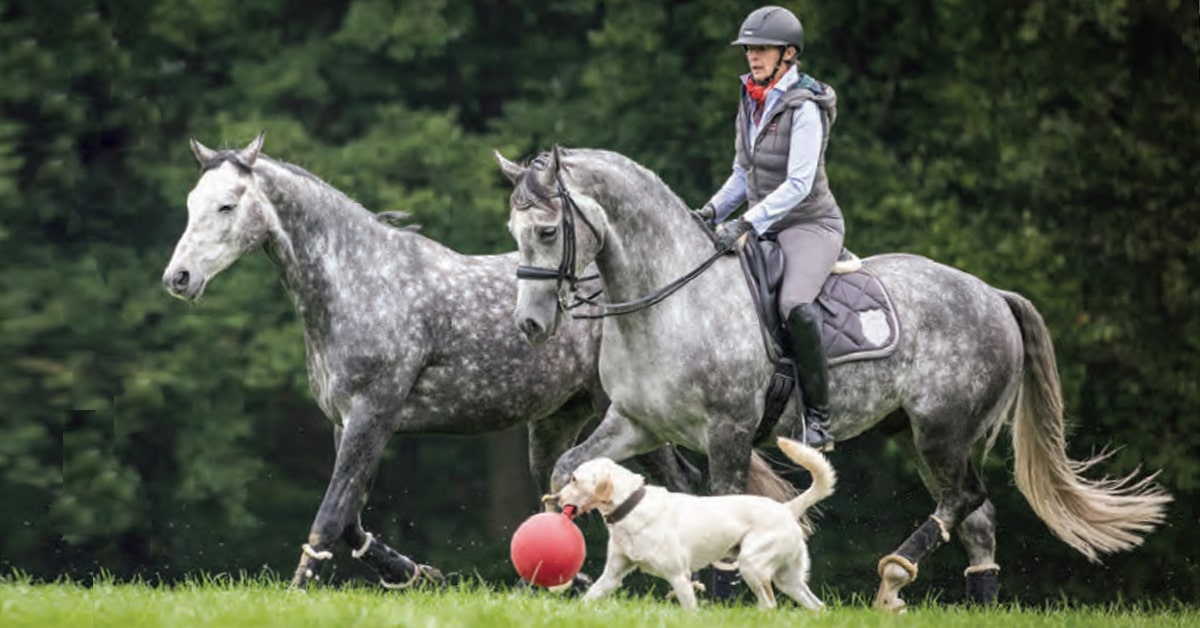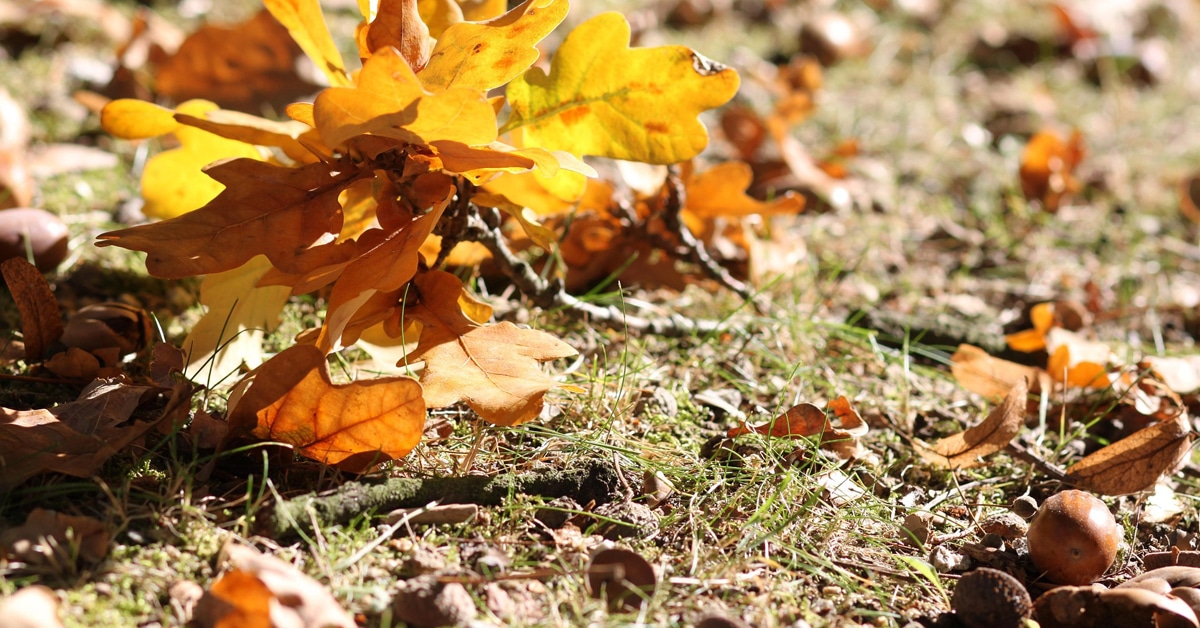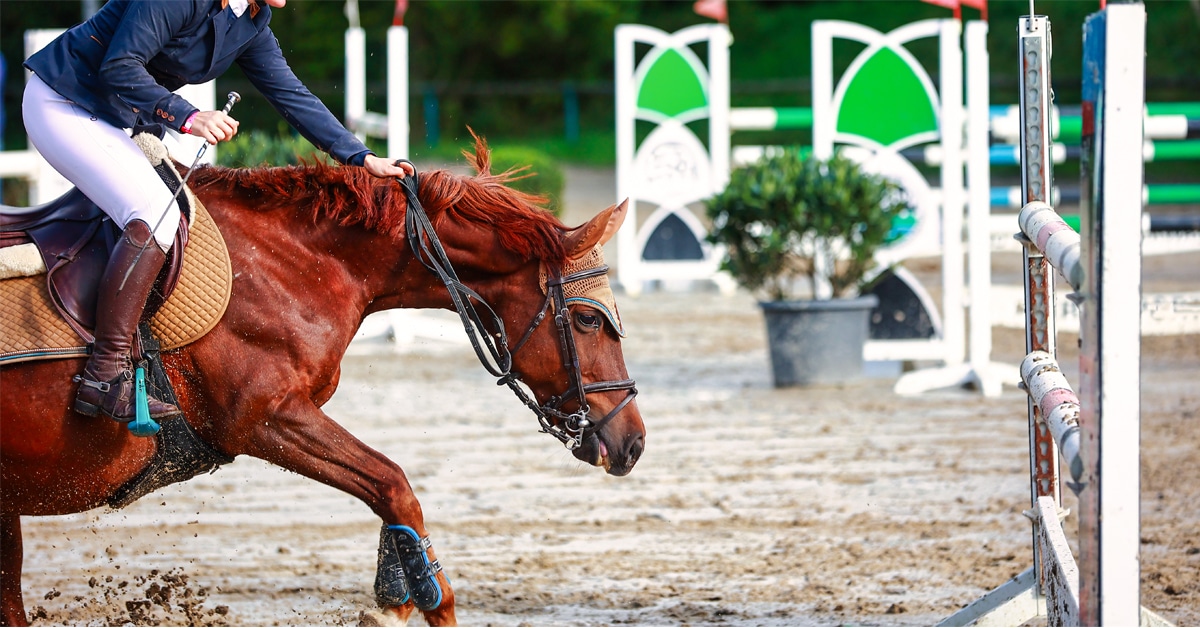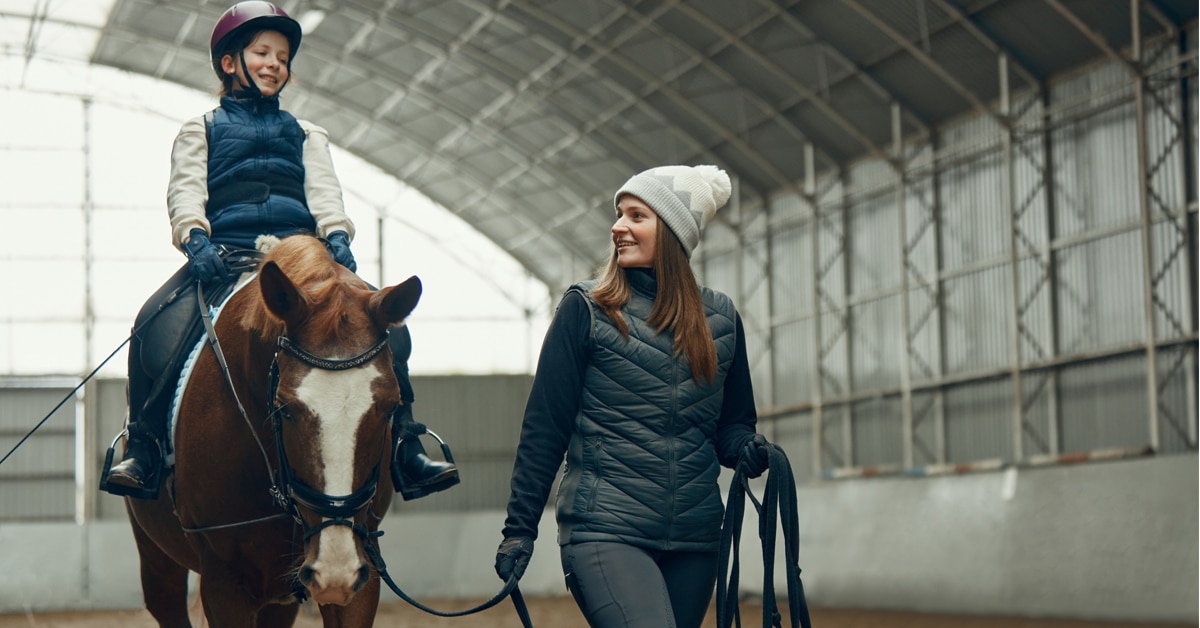“Who is Laura Graves?” must have been the most asked question at last summer’s World Equestrian Games in Normandy. The 27-year-old dressage rider from Vermont came out of nowhere and was virtually unknown even in her own country just three months prior to the world championships.
Ranked 18th in the US, Laura and the 12-year-old Verdades (Diddy) only made the US selection trials because others ranked above them dropped out. Finishing as reserve champion at the US Festival of Champions in June 2014 earned the slim 5’8” blonde a place on the team and passage to Europe for a first stab at competing overseas.
As a prelude to WEG, Graves led the US effort in the CDIO5* Grand Prix Special in Aachen with her completely self-taught Dutch Warmblood – no small feat for a pair which only started their CDI grand prix career six months before. Their international championship debut was no less incredible, leading the US team, alongside the vastly more experienced Steffen Peters, to fourth place and finishing fifth individually on a freestyle mark of 82.036% behind Olympic, World, and European champions.
They were the best the US had to offer in Caen, and the performance of this young lady at this summer’s Pan Am Games in Toronto could prove just as pivotal to Canada’s qualification for the Rio Olympic Games as it is for the USA.
How did you get started with horses?
I started riding with the 4H when I was about ten years old and my parents traded in a washer and dryer for two ponies. We kept them at home in a barn my parents saw in the newspaper. It was free; all they had to do was tear it down and raise it on our property. Eventually we acquired three horses and a bunch of local head cases we were given to rehabilitate. We did pretty well at that and were pretty successful at lower-level competitions.
What brought you and Verdades together?
I graduated from high school early, at 16, and that’s around the time my mother imported Diddy as a weanling. He needed time to grow, so I did some travelling and ended up teaching at the American riding school in Costa Rica. When I came back I didn’t know what it was I really wanted to do, but I knew I had to do something with the horse. He was very, very difficult. He wouldn’t let anyone else touch him apart from me. Until he was about six he was petrified of saddle pads, and forget the sound of Velcro! On the plus side, his sensitivity made him very responsive to my leg, which worked in our favour as we worked up through the grades.
Can you identify a turning point in your career?
My turning point came when we won the Intermediate II Open Dressage Championship at the US Finals in Kentucky in November, 2013. I had been out on my own after several years as a working student with Anne Gribbons and I was finally making enough to pay for competitions. I thought ‘now I’m on the right track.’
Was there a time when you nearly gave up on the dream?
Oh yes! At one point I almost went back to Vermont and put the horse in the field. It’s tough when you feel like you’re constantly being knocked down. I was told I had an international-quality horse, but I was working day and night and still I had no money and I couldn’t afford to show or take lessons. Fortunately, I met Curt [Maes], my boyfriend, and he gave me the chance to start my own business at his farm in Florida.
What is your typical day like?
We work seven days a week at our farm in Apopka from about 7 am, when my two working students feed the horses, to about 6:30 pm, when we check them in for the night. I am usually on my first horse by 8 am and ride six to eight a day. There are nine horses in the barn, seven belonging to clients. We have a bite to eat at midday and in the afternoon I’ll teach between two and four lessons. After dinner, around 9 o’clock, we’ll do a stall check to make sure everything and everyone is as it should be. We all live on site; that’s very important to me, and it makes the long days easier.
What was your first tour of Europe like?
Initially, I was nervous about how my very sensitive horse would handle the long trip, but I was very lucky that my first experience was part of a team. Everything was so well-organized and the back-up team was so supportive. I came back with a whole new attitude, because there is a much higher level of competitiveness in Europe. Seventy per cent doesn’t cut it anymore; everyone is riding for eighty per cent. I’ll be excited to test that in Florida this winter.
Do you make sacrifices to compete at this level of the sport?
With any success there is sacrifice, but when you put all of your energy into it and you reach your goal, it ends up not being a sacrifice. There are personal sacrifices, sure. You lose friends when you are never available for them. There is no freedom in your schedule to take off for a weekend or a week – I think people call it a ‘vacation.’
How would you (or your family) describe your character/personality?
Everyone would agree that I am very controlling and have zero tolerance. I’m a perfectionist, especially when it comes to horses. They would also agree that I am one of the world’s greatest procrastinators. I do really well under pressure, but it stresses them out!
If life hadn’t taken you where it has, would you have had another profession?
When I came back from Costa Rica I worked as a nanny, but it wasn’t for me. I was always doing friends’ hair and makeup and someone said ‘why don’t you go get qualified?’ So I studied to be a cosmetologist and worked as a hairdresser. It was something I was good at, so I would probably have done that and had my own salon.
If ‘Diddy’ was a human, what sort of person would he be?
He’s matured a lot, but he would be the popular guy at school who never returns your calls; the free-spirited guy that everyone wants to know. He’s an in-your-face personality and an attention hog who likes to grab blankets off the bar and throw them across the barn.
What’s your guilty pleasure?
Wine! I love a glass of wine at the end of the day. A nice cold pinot grigio when it’s hot and a pinot noir when the weather is chilly.
What’s next for you, and further on the horizon?
I’m looking forward to training again with US Developing Riders coach Debbie MacDonald in January. She has been selfless and extremely generous with her time. We may try to qualify for the World Cup Final in Las Vegas, but it rather depends on whether it fits in with our preparations for the summer’s Pan Am Games and beyond that, the Olympic Games in Rio.
The Latest
